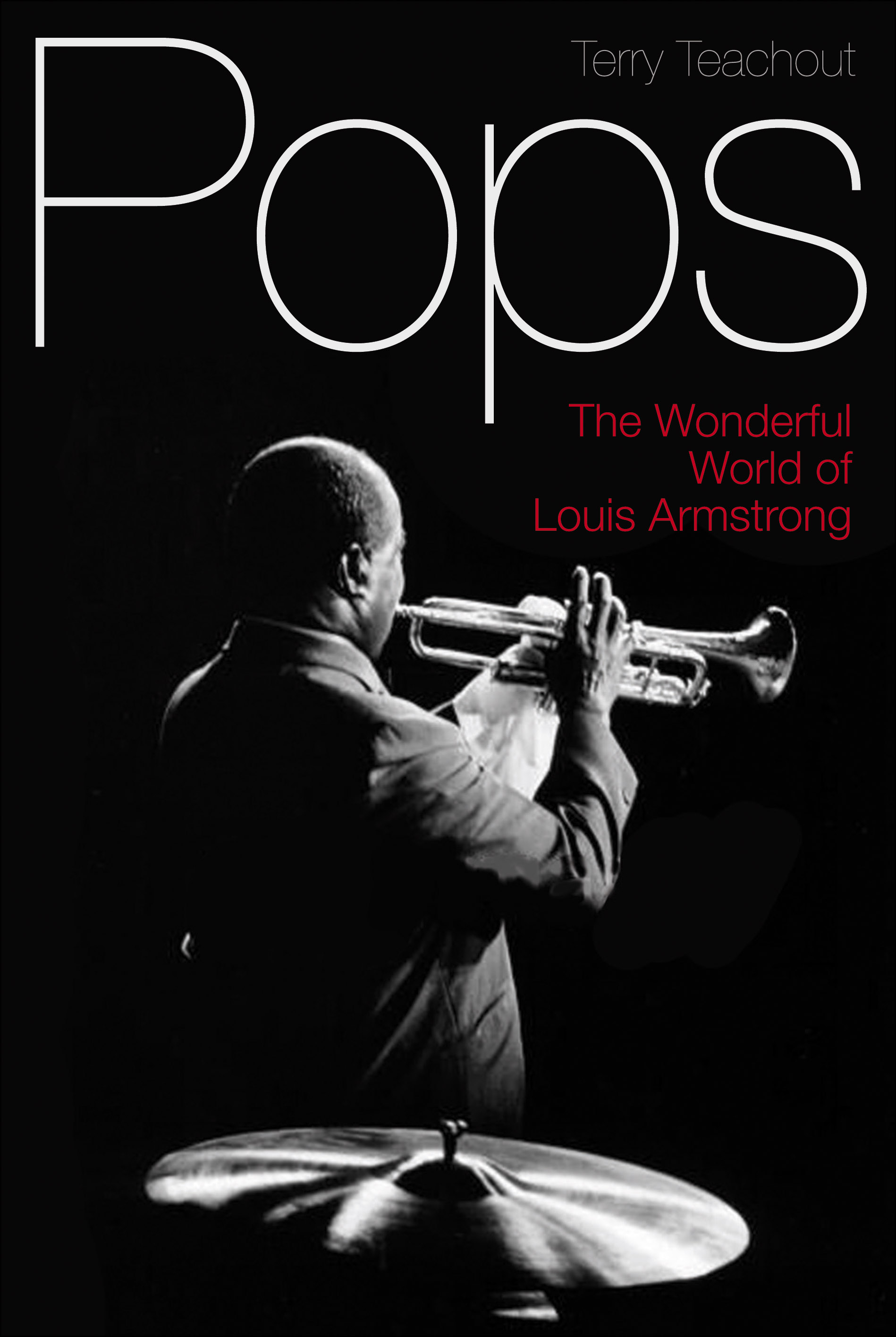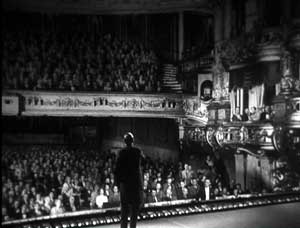 Pops: A Life of Louis Armstrong will be the first of my books to be published in England. JR Books, a new publisher specializing in “the arts, history, biography, humour, lifestyle and sport,” will be bringing out Pops at the end of November, simultaneous with its publication in this country by Houghton Mifflin Harcourt. The title over there will be Pops: The Wonderful World of Louis Armstrong. Jeremy Robson, my British publisher, has just e-mailed me the design for the front cover, which is very different from the American dust jacket but strikes me as wonderfully clean and elegant in its own way.
Pops: A Life of Louis Armstrong will be the first of my books to be published in England. JR Books, a new publisher specializing in “the arts, history, biography, humour, lifestyle and sport,” will be bringing out Pops at the end of November, simultaneous with its publication in this country by Houghton Mifflin Harcourt. The title over there will be Pops: The Wonderful World of Louis Armstrong. Jeremy Robson, my British publisher, has just e-mailed me the design for the front cover, which is very different from the American dust jacket but strikes me as wonderfully clean and elegant in its own way.
It’s fitting that Pops will be published in England, since the seventh chapter of the book tells the story of Armstrong’s 1932 European debut at the Palladium in London:

It is hard to imagine Louis Armstrong sharing a bill with such quintessentially English vaudevillians as Max Miller, the “cheeky chappie” whose loud suits and blue humor were as familiar to his audiences as Armstrong’s handkerchiefs and high Cs were to his–but, then, it is as hard for most of us to imagine what the London Palladium was like in 1932, three quarters of a century before it passed into the hands of Andrew Lloyd Webber and became the home of high-tech musical-comedy extravaganzas. Nowadays the Edwardian music hall, with its galloping comic songs, sentimental ballads, and flamboyantly costumed clowns, is known only to viewers of such films as The 39 Steps and The Entertainer. In the Thirties, though, it was still an immensely popular and vital institution, much more so than America’s fast-fading vaudeville circuit, and the 2,300-seat Palladium (on whose stage the hapless Mr. Memory is shot dead in the last scene of The 39 Steps) was the city’s most celebrated “variety house.” In any case Armstrong had nowhere else to go. The British musicians’ union was adamantly opposed to letting foreign musicians work in England, and the Ministry of Labour accordingly refused to grant permits allowing the members of American bands to perform in hotels, restaurants, or nightclubs. Alien though its culture was to a black jazzman from New Orleans, the music-hall circuit was the only place where Armstrong could introduce himself to the British public….
The story of Armstrong’s first European performances is a fascinating tale that I tell in detail in Pops. Part of what makes it so interesting is that he had never before been written about so extensively in the mainstream press. In America circa 1932 Armstrong was “a second-tier celebrity, worthy of a half-page in Time on a slow news week but not nearly so famous as Bing Crosby, or even Rudy Vallée. His name did not appear in the news columns of the New York Times until 1935, or in the Reader’s Guide to Periodical Literature until 1944.” In England, by contrast, he was a big story–and a controversial one.
Why? Read all about it in December!
* * *
Laurence Olivier plays a music-hall comedian in John Osborne’s The Entertainer, filmed by Tony Richardson in 1960:
